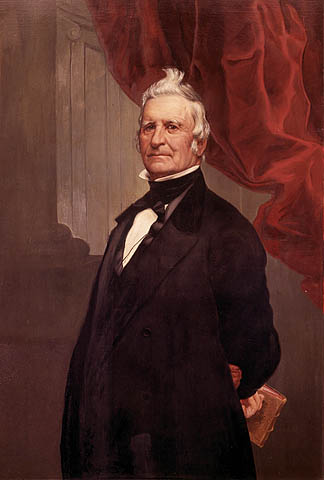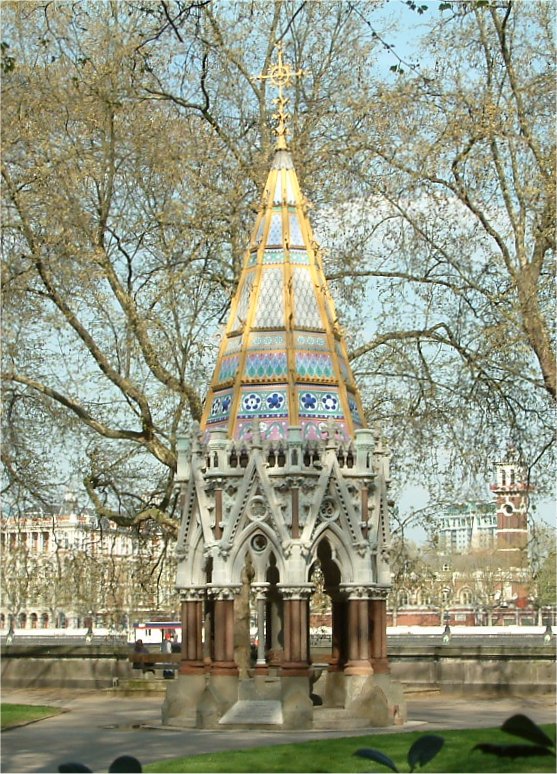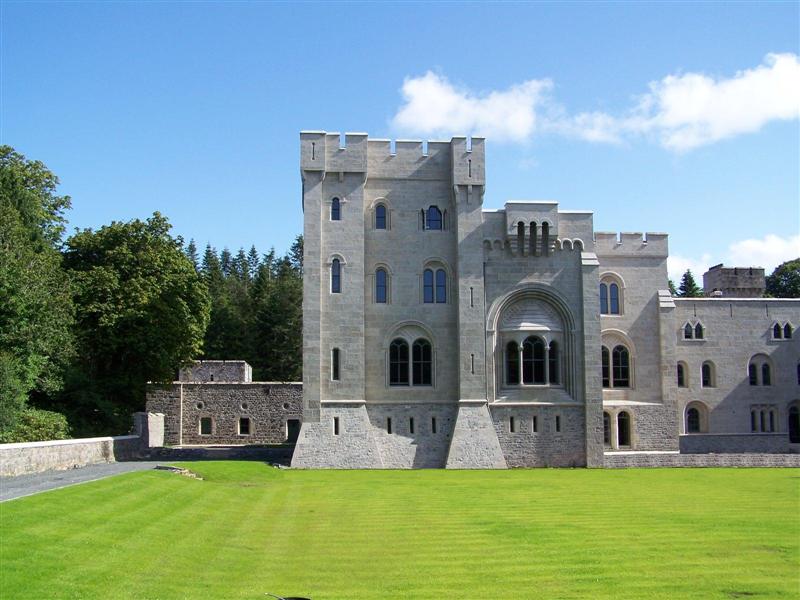|
Ninety-two Resolutions
The Ninety-Two Resolutions were drafted by Louis-Joseph Papineau and other members of the '' Parti patriote'' of Lower Canada in 1834. The resolutions were a long series of demands for political reforms in the British-governed colony. Papineau had been elected speaker of the Legislative Assembly of Lower Canada in 1815. His party constantly opposed the unelected colonial government, and in 1828 he helped draft an early form of the resolutions, essentially a list of grievances against the colonial administration. To ensure that the views of the Legislative Assembly be understood by the British House of Commons, the ''Parti patriote'' had sent its own delegation to London in order to submit a memoir and a petition signed by 78,000 people. On February 17, 1834, Elzéar Bédard introduced the Ninety-Two Resolutions in the Assembly. Papineau provided most of the arguments for the Resolutions in the subsequent debates. The Resolutions proved divisive, with some moderate supporters of ... [...More Info...] [...Related Items...] OR: [Wikipedia] [Google] [Baidu] |
Louis-Joseph Papineau
Louis-Joseph Papineau (; October 7, 1786 – September 23, 1871), born in Montreal, Province of Quebec (1763–1791), Quebec, was a politician, lawyer, and the landlord of the ''seigneurie de la Petite-Nation''. He was the leader of the reformist Patriote movement before the Lower Canada Rebellion of 1837–1838. His father was Joseph Papineau, also a politician in Quebec. Papineau was the eldest of eight children and was the grandfather of the journalist Henri Bourassa, founder of the newspaper ''Le Devoir''. Childhood and education Papineau was described as an energetic child. He first studied in Montreal, at the Collège de Montréal, Collège Saint-Raphaël from 1796 onwards, then at the Petit Séminaire de Québec, from 1802 to 1804."Louis-Joseph Papineau", His arrival at the Petit Séminaire de Québec was highly anticipated, and his reputation preceding him. Upon graduation, he began an apprenticeship under his father with the goal of becoming a blacksmith, but this ... [...More Info...] [...Related Items...] OR: [Wikipedia] [Google] [Baidu] |
Governor Of Lower Canada
The lieutenant governor of Quebec (; , ) is the representative in Quebec of the monarch, who Monarchy in Quebec, operates distinctly within the province but is also shared equally with the Canadian federalism, ten other jurisdictions of Canada. The lieutenant governor of Quebec is appointed in the same manner as Lieutenant governor (Canada), the other provincial viceroys in Canada and is similarly tasked with carrying out most of the monarch's constitutional and ceremonial duties. The present and 30th lieutenant governor of Quebec is Manon Jeannotte, who has served in the role since January 25, 2024. Role and presence The lieutenant governor of Quebec is tasked with Lieutenant governor (Canada)#Constitutional, a number of governmental duties. Not among them, though, is delivering the Speech from the throne, Throne Speech, which sets the lieutenant governor of Quebec apart from the other Canadian viceroys. (Instead, new National Assembly of Quebec, parliaments begin with the Openi ... [...More Info...] [...Related Items...] OR: [Wikipedia] [Google] [Baidu] |
February 1834
February is the second month of the year in the Julian and Gregorian calendars. The month has 28 days in common years and 29 in leap years, with the 29th day being called the ''leap day''. February is the third and last month of meteorological winter in the Northern Hemisphere. In the Southern Hemisphere, February is the third and last month of meteorological summer, being the seasonal equivalent of August in the Northern Hemisphere. Pronunciation "February" can be pronounced in several different ways. The beginning of the word is commonly pronounced either as or ; many people drop the first "r", replacing it with , as if it were spelled "Febuary". This comes about by analogy with "January" (), as well as by a dissimilation effect whereby having two "r"s close to each other causes one to change. The ending of the word is pronounced in the US and in the UK. History The Roman month was named after the Latin term , which means "purification", via the purificatio ... [...More Info...] [...Related Items...] OR: [Wikipedia] [Google] [Baidu] |
1834 Documents
Events January–March * January 1 – Zollverein (Germany): Customs charges are abolished at borders within its member states. * January 3 – The government of Mexico imprisons Stephen F. Austin in Mexico City. * January – The Wilmington and Raleigh Railroad is chartered in Wilmington, North Carolina. * February 3 – Wake Forest University is founded as the Wake Forest Manual Labor Institute in Wake Forest, North Carolina. * February 12 – Freed American slaves from Maryland form a settlement in Cape Palmas, it is named the Republic of Maryland. * February 13 – Robert Owen organizes the Grand National Consolidated Trades Union in the United Kingdom. * March 6 – York, Upper Canada, is incorporated as Toronto. * March 11 – The United States Survey of the Coast is transferred to the Department of the Navy. * March 14 – John Herschel discovers the open cluster of stars now known as NGC 3603, observing from the Cape of Good Hope. * March 28 – Andrew Jackson i ... [...More Info...] [...Related Items...] OR: [Wikipedia] [Google] [Baidu] |
1834 In Lower Canada
Events January–March * January 1 – Zollverein (Germany): Customs charges are abolished at borders within its member states. * January 3 – The government of Mexico imprisons Stephen F. Austin in Mexico City. * January – The Wilmington and Raleigh Railroad is chartered in Wilmington, North Carolina. * February 3 – Wake Forest University is founded as the Wake Forest Manual Labor Institute in Wake Forest, North Carolina. * February 12 – Freed American slaves from Maryland form a settlement in Cape Palmas, it is named the Republic of Maryland. * February 13 – Robert Owen organizes the Grand National Consolidated Trades Union in the United Kingdom. * March 6 – York, Upper Canada, is incorporated as Toronto. * March 11 – The United States Survey of the Coast is transferred to the Department of the Navy. * March 14 – John Herschel discovers the open cluster of stars now known as NGC 3603, observing from the Cape of Good Hope. * March 28 – Andrew Ja ... [...More Info...] [...Related Items...] OR: [Wikipedia] [Google] [Baidu] |
Lower Canada Rebellion
The Lower Canada Rebellion (), commonly referred to as the Patriots' Rebellion () in French, is the name given to the armed conflict in 1837–38 between rebels and the colonial government of Lower Canada (now southern Quebec). Together with the simultaneous rebellion in the neighbouring colony of Upper Canada (now southern Ontario), it formed the Rebellions of 1837–38 (). As a result of the rebellions, the Province of Canada was created from the former Lower Canada and Upper Canada. History The rebellion had been preceded by nearly three decades of efforts at political reform in Lower Canada, led from the early 1800s by James Stuart and Louis-Joseph Papineau, who formed the Parti patriote and sought accountability from the elected general assembly and the appointed governor of the colony. After the Constitutional Act 1791, Lower Canada could elect a House of Assembly, which led to the rise of two parties: the English Party and the Canadian Party. The English Party ... [...More Info...] [...Related Items...] OR: [Wikipedia] [Google] [Baidu] |
Lord John Russell
John Russell, 1st Earl Russell (18 August 1792 – 28 May 1878), known as Lord John Russell before 1861, was a British Whig and Liberal statesman who served as Prime Minister of the United Kingdom from 1846 to 1852 and again from 1865 to 1866. The third son of the 6th Duke of Bedford, Russell was educated first by private tutors due to his fragile health and later at Westminster School and Edinburgh University before entering Parliament in 1813. In 1828 he took a leading role in the repeal of the Test Acts which discriminated against Catholics and Protestant dissenters. He was one of the principal architects of the Reform Act 1832, which was the first major reform of Parliament since the Restoration, and a significant early step on the road to democracy and away from rule by the aristocracy and landed gentry. He favoured expanding the right to vote to the middle classes and enfranchising Britain's growing industrial towns and cities, but he never advocated universal suffra ... [...More Info...] [...Related Items...] OR: [Wikipedia] [Google] [Baidu] |
Home Secretary
The secretary of state for the Home Department, more commonly known as the home secretary, is a senior minister of the Crown in the Government of the United Kingdom and the head of the Home Office. The position is a Great Office of State, making the home secretary one of the most senior and influential ministers in the government. The incumbent is a statutory member of the British Cabinet and National Security Council (United Kingdom), National Security Council. The position, which may be known as interior minister in other nations, was created in 1782, though its responsibilities have Home Office#History, changed many times. Past office holders have included the prime ministers Lord North, Robert Peel, the Duke of Wellington, Lord Palmerston, Winston Churchill, James Callaghan and Theresa May. The longest-serving home secretary is Henry Addington, 1st Viscount Sidmouth, who held the post continuously for 9 years, 221 days. The shortest-serving home secretary is Grant Shapps, w ... [...More Info...] [...Related Items...] OR: [Wikipedia] [Google] [Baidu] |
Archibald Acheson, 2nd Earl Of Gosford
Archibald Acheson, 2nd Earl of Gosford, (1 August 1776 – 27 March 1849), styled The Honourable Archibald Acheson from 1790 to 1806 and Lord Acheson from 1806 to 1807, was a British politician who served as Lieutenant-Governor of Lower Canada and Governor General of British North America in the 19th century. Early life Acheson was born on 1 August 1776 at Markethill, County Armagh, Ireland. Gosford was the son of Arthur Acheson, 1st Earl of Gosford, and his wife Millicent (née Pole). He succeeded his father to his titles and estates in 1807. Career Acheson sat in the Irish House of Commons for County Armagh from 1798 until the Act of Union in 1801, when Ireland became part of the United Kingdom. Subsequently, he was a Member of the British House of Commons representing Armagh to 1807, when he succeeded to his father's Irish titles as Earl of Gosford. He entered the British House of Lords in 1811 upon being elected an Irish representative peer. In 1831 he was appointed t ... [...More Info...] [...Related Items...] OR: [Wikipedia] [Google] [Baidu] |
Royal Commission For The Investigation Of All Grievances Affecting His Majesty's Subjects Of Lower Canada
The Royal Commission for the Investigation of all Grievances Affecting His Majesty's Subjects of Lower Canada was established seven years after the publication of the report of a Select Committee of the House of Commons on the Civil Government of Canada, which had recommended important constitutional changes that were never effected. Governor Gosford led the royal commission of inquiry as commissioner together with Charles Edward Grey and George Gipps. They received instructions from Charles Grant, 1st Baron Glenelg, Secretary of State for War and the Colonies. Report Five reports, in addition to a conclusive general report were prepared by the commission. The commissioners published a first report on financial matters in January 1836. Drafted by Gipps, the report recommended all crown revenues to be surrendered to the Legislative Assembly with the exception of a modest civil list. A second report was published in March. It recommended the ''Revenue Act'' of 1831 to be repealed ... [...More Info...] [...Related Items...] OR: [Wikipedia] [Google] [Baidu] |
Constitutional Act Of 1791
The Constitutional Act 1791 ( 31 Geo. 3. c. 31) () was an act of the Parliament of Great Britain which was passed during the reign of George III. The act divided the old Province of Quebec into Lower Canada and Upper Canada, each with its own parliament and government. It repealed the '' Quebec Act 1774''. The act remained in force until 1841, when it was largely repealed by the ''Union Act, 1840'', which reunited the two provinces into the new Province of Canada. Some provisions relating to the clergy reserves remained in force. The remaining provisions of the act were repealed over time, with final repeal in 1966. History The act reformed the government of the Province of Quebec (1763–1791) to accommodate, amongst other Loyalists, the 10,000 United Empire Loyalists who had arrived from the United States following the American Revolution. The Province of Quebec, with a population of 145,000 French-speaking '' Canadiens'', was divided in two when the act took effect on ... [...More Info...] [...Related Items...] OR: [Wikipedia] [Google] [Baidu] |






